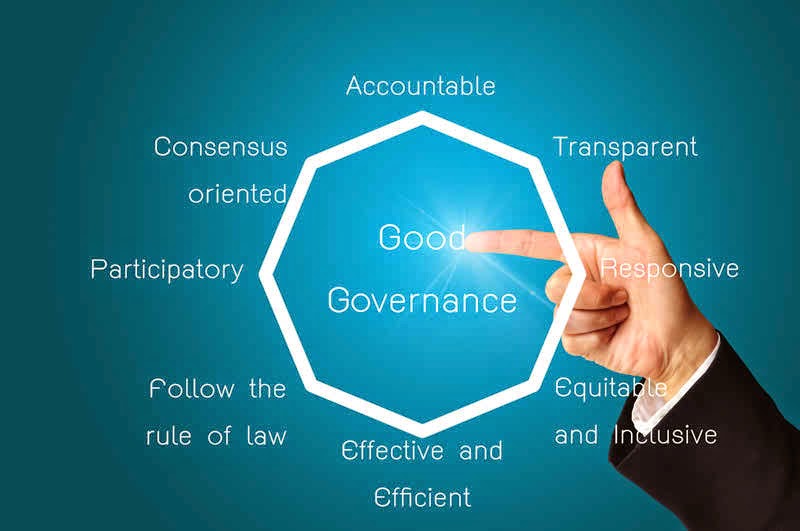In today’s fast-paced and ever-evolving business landscape, organizations are often caught in a delicate dance between ambition and structure. As companies strive for growth, the challenge lies not merely in expanding operations but in establishing a robust governance framework that can adapt and evolve alongside their ambitions.
Many businesses suffer from a lack of clear direction, leading to inefficiencies and misalignment. So, how can leaders craft governance structures that not only support but also actively propel growth? This article delves into the essential components of effective governance, exploring how strategic oversight, transparent communication, and agile decision-making can harmonize to create an environment where innovation thrives and opportunities are seized.
Join us as we unlock the keys to fostering a governance culture that nurtures both stability and dynamism, ensuring your organization is not just ready to grow but also poised to flourish.
Introduction to Governance Structures

In today’s dynamic business landscape, the design of governance structures plays a pivotal role in fostering sustainable growth. Governance structures are not merely bureaucratic layers; they are frameworks that define decision-making processes, establish accountability, and promote transparency.
By thoughtfully constructing these frameworks, organizations can navigate complex challenges, adapt to shifting market conditions, and harness collective expertise.
For companies seeking guidance on implementing effective governance and connecting with the right talent to support their organizational objectives, Ned Capital Recruitment offers expert insights and solutions that help align leadership, teams, and strategic priorities for sustainable growth.
It’s essential to recognize that effective governance is a living system—one that must evolve alongside the organization’s aspirations and environmental changes.
As we delve into the intricacies of building governance structures, we will explore not just the theoretical underpinnings but also practical approaches that align with a company’s vision and enable it to flourish in a competitive world.
Understanding the Importance of Governance in Growth

Effective governance is not merely a bureaucratic necessity; it is a dynamic framework that propels growth and fosters innovation within organizations. At its core, governance establishes clear lines of accountability and promotes transparency, both of which are essential for navigating the complexities of a rapidly changing business landscape.
Comprehending the nuances of governance means recognizing that it encompasses far more than compliance; it involves crafting a culture where strategic decision-making can flourish. By integrating diverse perspectives and encouraging open communication, a robust governance structure enables organizations to respond agilely to market shifts while mitigating risks.
In this intricate dance of regulation and creativity, governance emerges as the bedrock upon which sustainable growth can be built, ensuring that every stakeholder—from employees to investors—aligns towards a shared vision of success.
Creating Flexibility and Adaptability in Governance
Creating flexibility and adaptability in governance begins with a fundamental shift in mindset—one that embraces change as an opportunity rather than a disruption. By fostering a culture that prioritizes continuous learning and innovation, organizations can respond swiftly to evolving market conditions and emerging threats.
This involves not only establishing clear frameworks that allow for rapid decision-making but also encouraging cross-functional collaboration to break down silos. Imagine a governance structure where policies are not static but can evolve in real-time, responding to data insights and stakeholder feedback.
Such an approach invites diverse perspectives, harnessing the richness of varied experiences to inform strategies. Moreover, embedding adaptive processes means that organizations can pivot, recalibrate, and thrive in times of uncertainty, ultimately positioning themselves for sustained growth in an ever-changing landscape.
Challenges in Governance Structures and How to Overcome Them
Governance structures often grapple with a myriad of challenges that can stifle growth and innovation. One of the foremost issues is the rigid hierarchy that can lead to slow decision-making processes, hampering responsiveness in a dynamic market landscape.
Moreover, a lack of clear communication channels can create silos, where information fails to flow freely, thus depriving teams of crucial insights. To combat these obstacles, organizations must adopt a more agile governance approach.
This could involve flattening organizational structures to empower frontline teams and enhance collaboration. Embracing technology for real-time communication can also break down barriers, allowing for a more cohesive strategy that aligns with the fast-paced demands of growth. Additionally, fostering a culture of inclusivity can ensure diverse perspectives inform governance, ultimately leading to more informed, innovative decisions.
Conclusion

In conclusion, establishing effective governance structures is essential for fostering sustainable growth within any organization. By prioritizing clear communication, accountability, and diverse stakeholder engagement, businesses can navigate the complexities of growth while maintaining alignment with their core values.
Companies like Ned Capital Recruitment exemplify how strategic governance can enhance operational efficiency and drive success, demonstrating that well-structured frameworks not only support expansion but also cultivate a resilient organizational culture. As leaders embark on this journey, it is imperative to remain adaptable and open to refining governance practices to meet the evolving needs of their enterprises.


